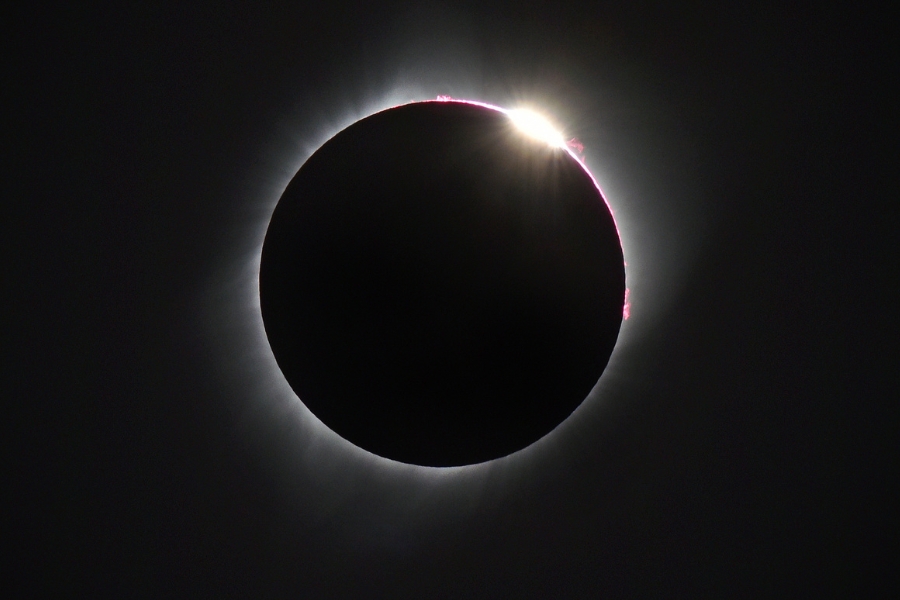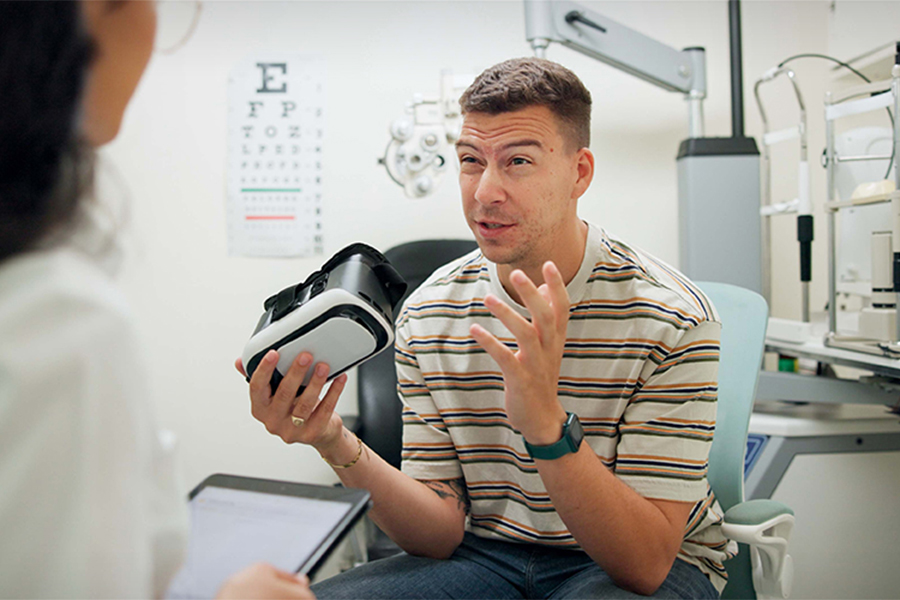
A total solar eclipse is set to happen on April 8 across Central and Eastern Canada, including Ontario, Quebec, New Brunswick, Prince Edward Island, Nova Scotia, and Newfoundland and Labrador.
A total solar eclipse occurs when the moon passes and aligns perfectly between the sun and the earth, blocking the sunlight completely.
This is considered a “once in a lifetime” experience for many, as the last total eclipse in Canada happened almost 45 years ago.
Safety is the number one priority for viewing the eclipse. Dr. Brian Ballios, a retina specialist and clinician scientist at UHN’s Donald K. Johnson Eye Institute addresses some questions on safe viewing and the impacts on the eyes.

Q: How do I view the solar eclipse safely?
(Dr. Ballios) For many, viewing a solar eclipse is an exciting and memorable experience, but must be done safely.
Looking at the sun without the right eye protection, even if only briefly, can damage your retina permanently. It can even cause a blinding eye condition called solar retinopathy.
Ordinary sunglasses, even dark ones, or homemade filters, are not safe for looking at the sun.
The only way to safely look directly at the sun, whether during an eclipse or otherwise, is through special solar filters, which are used in eclipse (solar) glasses and in hand-held solar viewers.
Q: How do I know if my solar glasses are appropriate for viewing? What are the ratings?
The eclipse glasses or solar filters must meet an international standard rating known as ISO 12312-2, which helps to block the sun’s harmful ultraviolet (UV) and infrared rays, allowing only a limited amount of visible light to reach the eyes.
Always read and follow all directions that come with these approved filters, and help children use these glasses or filters correctly.
Q: What would happen if I looked at the eclipse without protection? What are the impacts on the eyes?
Solar retinopathy, also known as photic retinopathy, refers to photochemical toxicity to retinal tissue, typically in and around the centre of the retina, known as the fovea. Depending on the amount and time of exposure, this can lead to developing blind spots due to retinal burns, and in some cases, even permanent vision loss.
While some partial recovery is possible, patients are frequently left with permanent defects in their central vision in one or both eyes. There is currently no medical or surgical treatment for solar retinopathy.
Q: If I’m not in the “path of totality,” or a city where I could see the full solar eclipse, can I look at the sun then?
People who live outside of the “path of totality” – including Toronto – will only see a partial eclipse. Eclipse glasses and hand-held solar viewers are still required if you decide to look at the sun.
Looking at the sun without the right eye protection, even for a short time, can permanently damage your retina. This is particularly dangerous when looking at the uneclipsed or partially-eclipsed sun, such as times when you are not in the “path of totality.”
Q: Can I view the eclipse through my phone, binoculars or telescope?
Never look at the uneclipsed or partially-eclipsed sun through an unfiltered camera, telescope, binoculars or other optical devices.
Consult with an expert astronomer if you want to use special solar filters with these devices.
Q: What should I do if I accidentally look at the sun directly?
If you accidentally look at the sun directly, you should immediately look away. Closely monitor your vision and check for any signs of blurry vision or discomfort. If you experience any symptoms with your vision, visit your eye care provider immediately for a thorough examination, including an evaluation of the eyes and retinal health.
If you have any questions or concerns about safe sun viewing, please speak to your eye care provider or physician.
For more information on eye health, visit UHN’s Donald K. Johnson Eye Institute
By Sara Yuan

No one ever changed the world on their own but when the bright minds at UHN work together with donors we can redefine the world of health care together.


